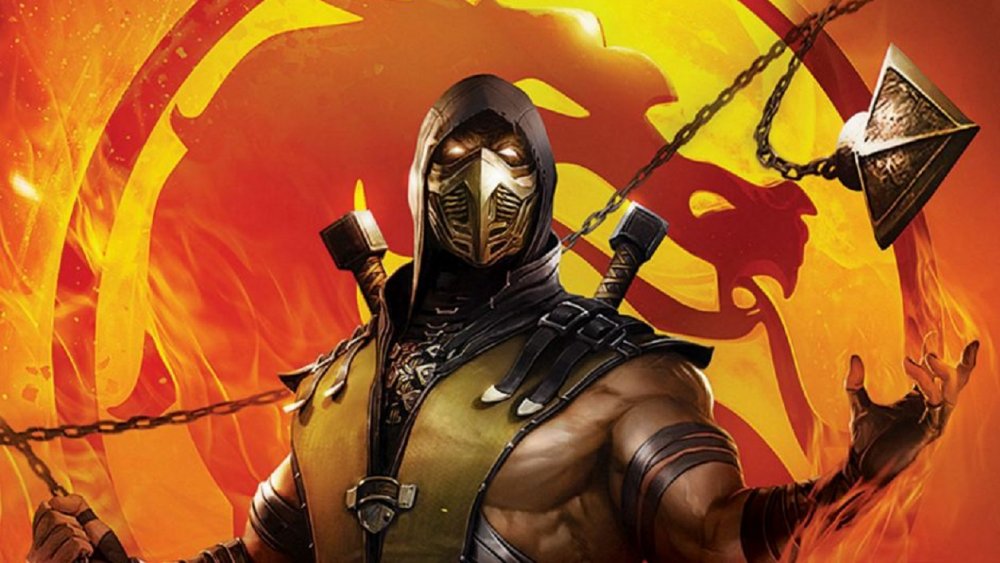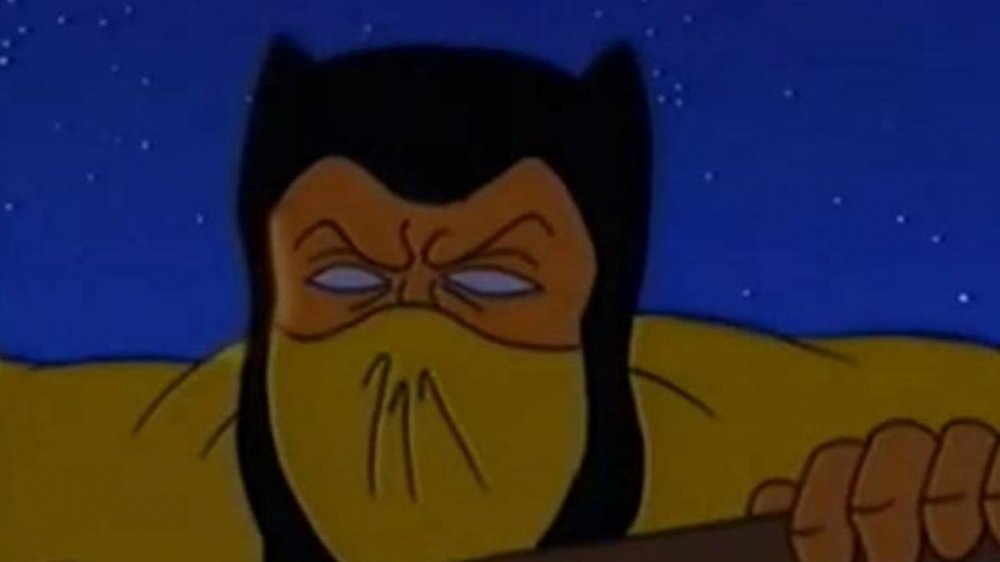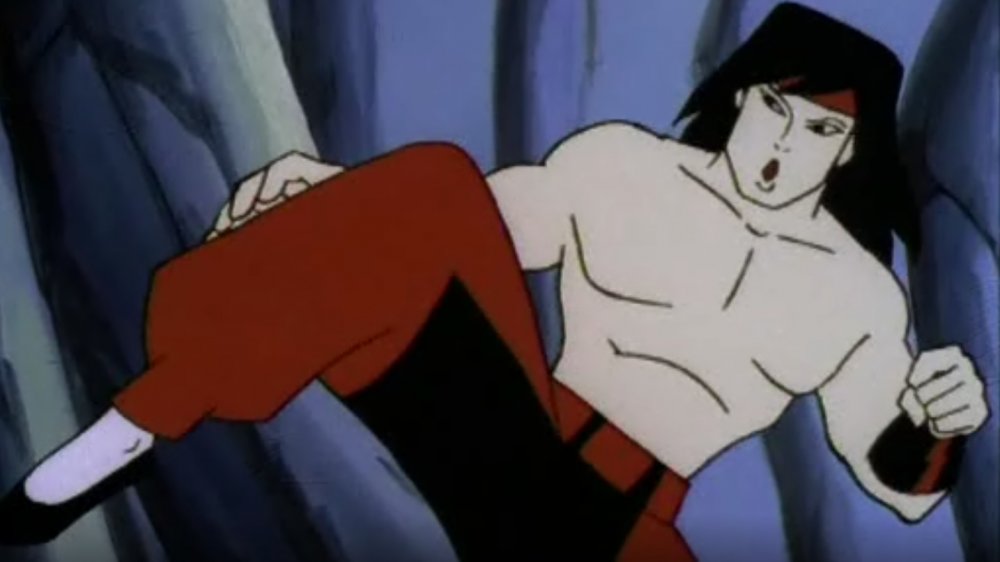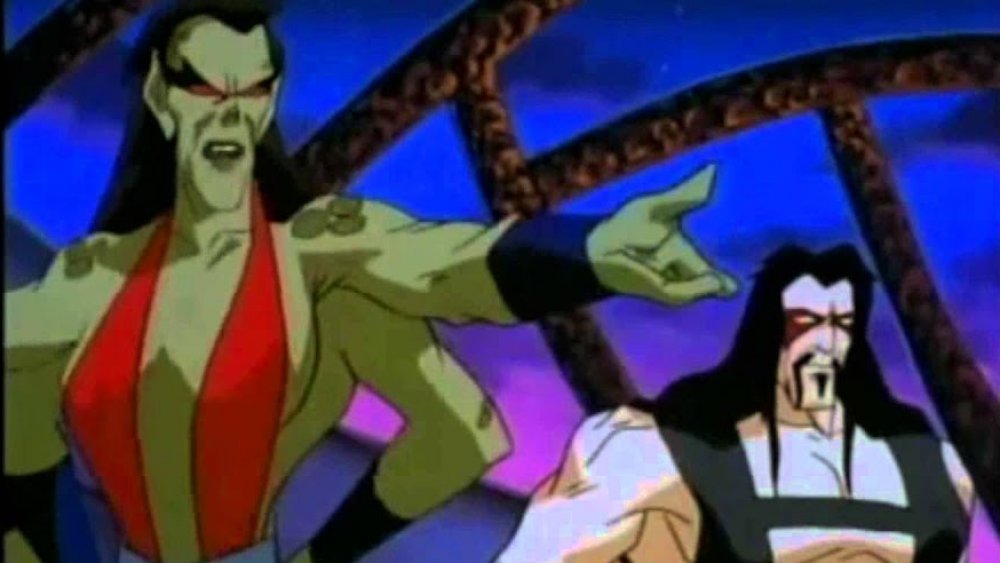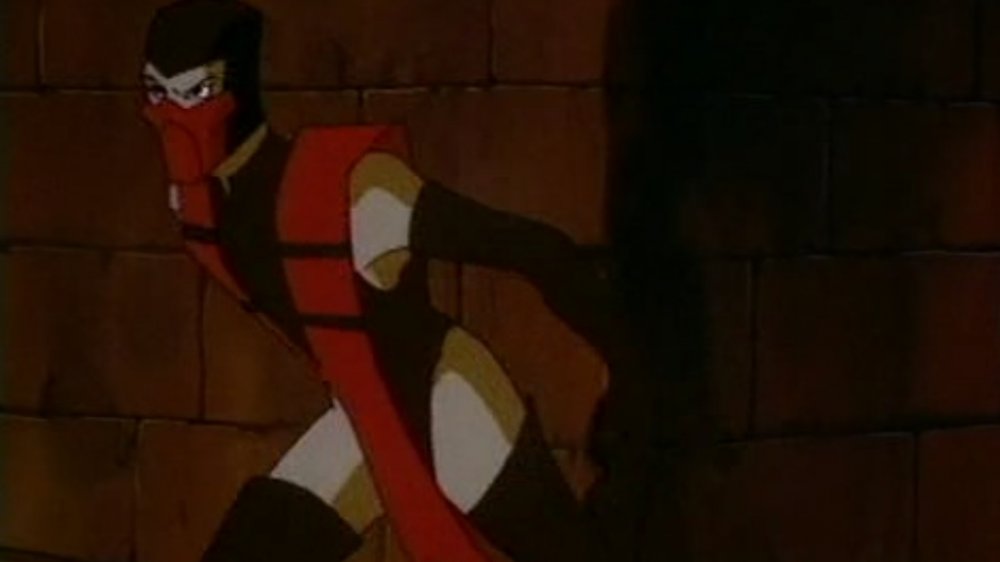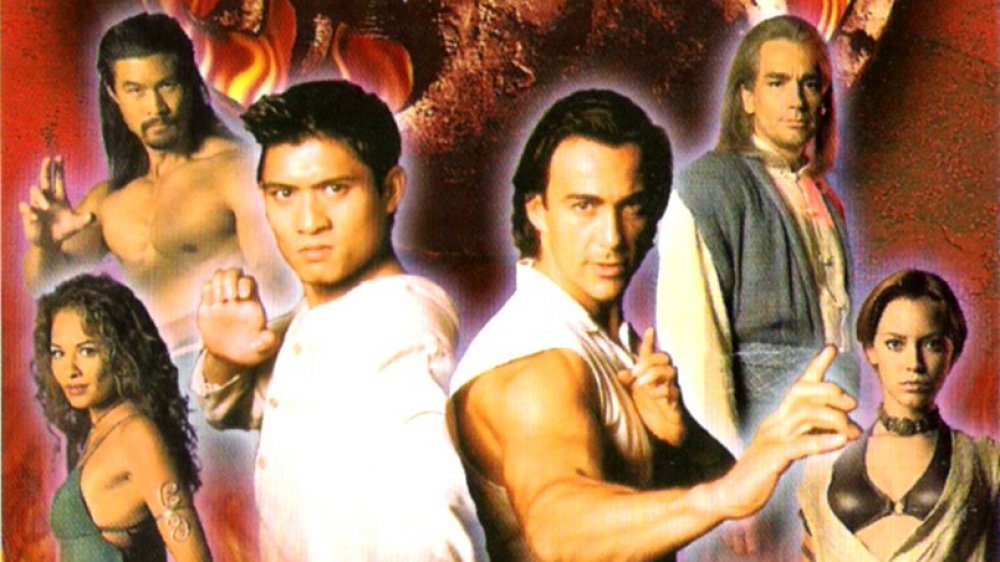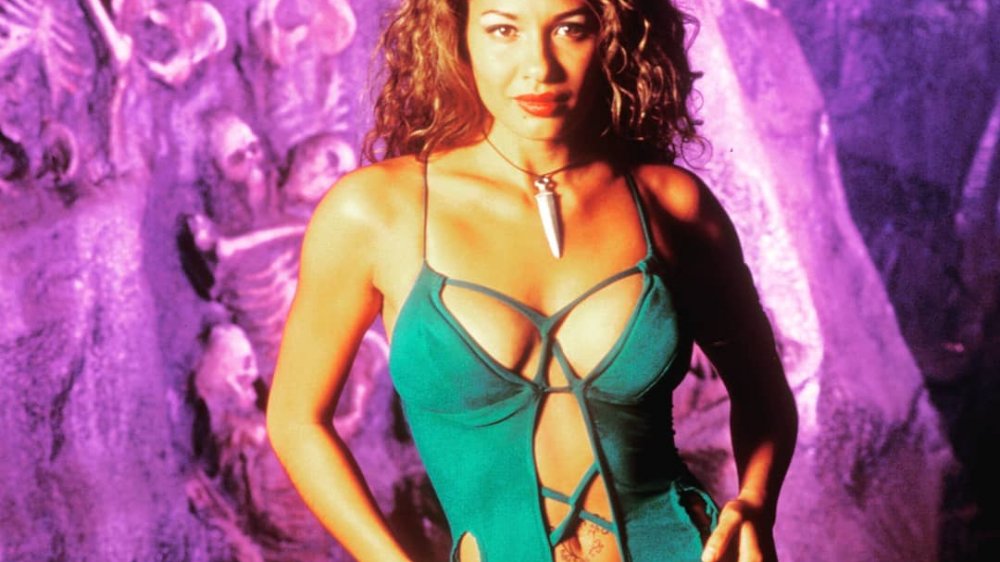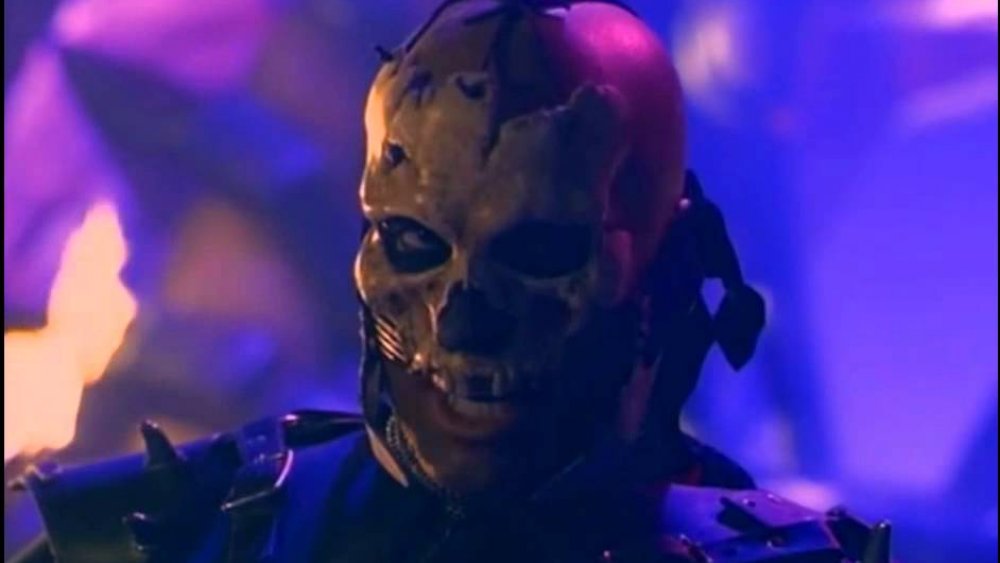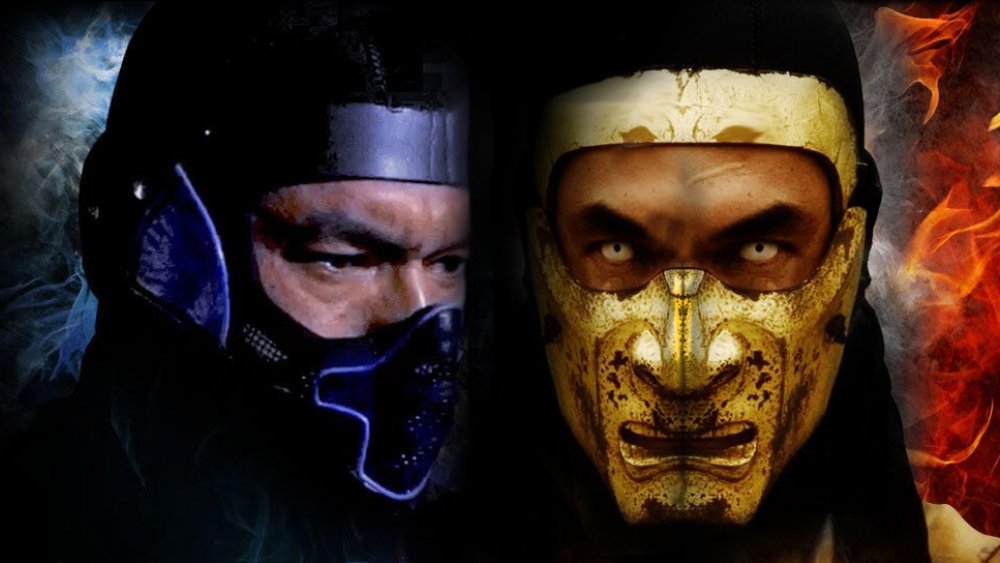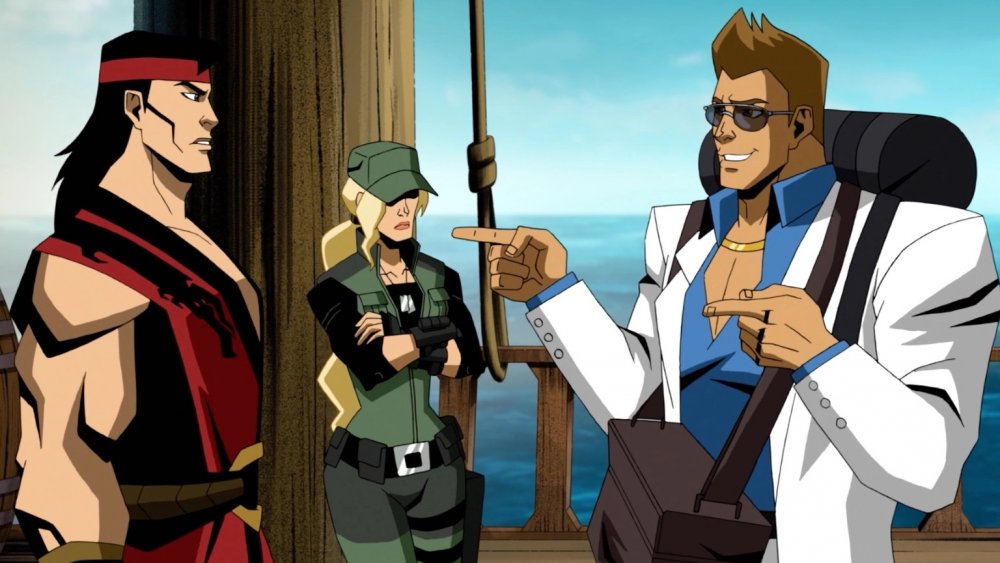The Real Reason Mortal Kombat TV Shows Never Succeeded
Mortal Kombat is the most successful fighting game franchise in video game history — at least in the United States — and manages to be a hit in other media as well. The 1995 Mortal Kombat film is often credited as being the first good movie based on a video game, and the characters and lore have been explored in further detail on the small screen. Sadly, these shows did not perform well and seem to be a forgotten chapter in the franchise's rise to mammoth popularity.
Now, after a successful revitalization of the games in 2011, the announcement of an upcoming live-action Mortal Kombat film, and the new animated feature Mortal Kombat Legends: Scorpion's Revenge garnering good reviews, Mortal Kombat is riding high once more. If this fresh start is to be a success though, it is important to know about the attempts that came before and the mistakes that creators won't want to repeat.
The journey begins ... unfortunately
Mortal Kombat's first TV endeavor was Mortal Kombat: The Journey Begins, a straight-to-video release which quickly became known as one of the worst pieces of media to ever bear the property's name. Released on VHS and laserdisc, the movie is 55 minutes of "virtual kombat" action, containing a mix of traditional animation and horrible early CGI. The film attempts to act as a prelude and alternate version of the 1995 live-action movie's first quarter, but fails miserably. To call it a disaster would be too kind.
The Journey Begins has become a laugh-worthy footnote of how bad things can get. Thankfully, its failure didn't harm the Mortal Kombat film too much. Though there were those who paid good money for this atrocity, it was mercifully offered for free at many rental stores during the marketing period. Thankfully, things could only go up from there as far as Mortal Kombat's fortunes beyond the arcade are considered.
Defenders of the realm
Mortal Kombat: The Animated Series, known in the US as Defenders of the Realm, is aimed at a younger audience, and acts as a sequel to the events of the 1995 film. Some refer to it as an "alternative" series of events, due to the fact that Mortal Kombat: Annihilation overwrites the show. Though many would take Defenders of the Realm over the franchise's second film, it comes at the cost of the blood, sex, and all other kid-unfriendly aspects that make the series such a hit.
The show takes much of its inspiration from the look and events of Mortal Kombat 3. This means that Johnny Cage does not appear in the cartoon, being dead and all, though many of his traits are given to Kurtis Stryker. When the show isn't doing incredibly censored flashbacks to events from the first film, the collected group of Liu Kang, Kitana, Sub-Zero, Sonya Blade, Jax, Stryker, and Nightwolf must fight against invading forces from Outworld, as well as other threats to the Earth. The warriors fly in dragon-shaped jets, instead of getting Raiden to teleport them everywhere, which is bizarre, but likely boosted toy sales. All in all, it's not a disaster, but it's not exactly brilliant.
Bound by honor
Defenders of the Realm is interesting in how its characters depart from the game's portrayals — for good and for ill. Raiden is powerful, but snarky like in the film, even mocking the group at times. Sonya Blade is often rash, rushing into situations that get her teammates injured, and saddled with the show's catchphrase. We could all live without hearing her cry "Kombat time!" again.
Some backstories for newer characters are established, like the history between Rain and Kitana — but they are often confusing. One episode perpetuates the argument over whether Jax's arms are enhanced by metal and technology or completely cybernetic. Nightwolf is usually depicted as a shaman, but the show made him the group's tech guy, as well as partnering him up with a wolf who jumps into his chest to give him powers.
Strangely, characters resembling Reptile and Baraka show up as key villains, but with different names, as well as someone called Ruby who appears to be a mixture of Jade and Tanya. There are also a few entirely new fighters introduced. Defenders of the Realm is also notable for debuting Quan Chi. He isn't quite the all-powerful necromancer he would later be portrayed as, but it's good to see his humble beginnings.
Childish fighting
Animation for Defenders of the Realm isn't horrible, but many scenes seem sparse, and the style lacks detail. For a property that's all about action, this flaw is hard to overlook. In streamlining character designs, many end up looking flat and oddly proportioned: Shadows don't land where they should, fabric moves stiffly, and faces lacks the level of expression necessary to making dramatic scenes work.
Moreover, the degree to which the cartoon strips the property of its darker aspects renders it uninteresting. Plus, in the end, it didn't actually work: Even with the source material toned down tremendously, the content still had parents in an uproar. This was most likely a contributing factor, along with dwindling ratings, when it came time to cancel the show. It isn't the worst cartoon (though that isn't saying much), but Defenders of the Realm handicapped itself by trying to step outside of the franchise's comfort zone.
Mortal Kombat: Konquest
1998's Mortal Kombat: Konquest series has a strong premise, but its execution is lacking. The show introduces many new characters, but fails to give them the level of development they deserve. Many of these new faces are fun and have strong traits, but each feels like they are missing something, and none of the events that should leave an impact on them carry over to further episodes. It's all style, no substance — the sort of dumbed-down storytelling that dooms most TV and/or movie adaptations of video game properties.
The worst part is how the main characters (and Raiden, at times) always bicker, blatantly for the sake of the thinly-written plot. Interesting stories and relationships grow, only to be snuffed out for the sake of badly-written drama. No one gets to grow or change, for the sake of storylines no one really found that interesting in the first place. The series ended after just one season, which came as a surprise to precisely no one.
Cheap costumes and weird CGI
Whereas Defenders of the Realm removed every bit of the violence and sexuality from the property, Konquest has some quality fight scenes — as long as no one minds a bit of obvious wire work and stunt doubles — and relishes its sex appeal. Seriously: The end of each episode recaps the best fight scenes and sexy moments while the credits roll. Konquest was shot at Disney-MGM Studios in Orlando, Florida, and though it has some decent (though usually small) sets, it fails utterly in the wardrobe department. No one watched this series for its luxurious costuming, but the cheapness of the clothes distracts tremendously, and makes some of the more overtly sexual scenes accidentally hilarious.
Those clothes, however, still look better than the show's CGI. Establishing shots that they couldn't steal from the movies look nightmarish, while magic ranges from looking a bit cheesy to absolutely abominable. It was a big deal for the time, sure, but does it hold up? Not even remotely.
Round 2: Canceled
With a lucrative timeslot and the creators claiming that people were watching the show, it isn't hard to think Konquest was somewhat popular. The real reason for the series' cancellation seems to be the cost. There was speculation that Mortal Kombat: Annihilation led to a lack of market interest, while actor Dave Corey credits its demise to "mysterious industry politics." Adoni Maropis (who played an awesome Quan Chi) also commented that Konquest – or at least the games it is based on — was being blamed for the Columbine shooting.
Rumors of a second season circulated for a while, and speculation ran rampant. Writer James Cappe has said that they hadn't made any full plans for further stories, however. He also noted that the last episode — a fan favorite, second only to "The Serpent and the Ice" — is a terrible series ending. Alas, poor Konquest. With the third Mortal Kombat movie eventually being canceled, this would be the final offering of its kind for quite some time.
Further combat training
Mortal Kombat spent many years away from the realms of movies and television, but it also experienced a cooling-down period on its home turf. Mortal Kombat vs. DC Universe did not give gamers what they wanted — but a new era was around the corner with the short film Mortal Kombat: Rebirth. This grounded and gritty version strips away many of the franchise's mystical elements, and served as director Kevin Tancharoen's proof of concept of his new vision for the IP. This led to the creation of a web series: Mortal Kombat: Legacy.
Legacy is a mixture of Tancharoen's Rebirth and the original source material. Fans now had a show that gave them the mature content they had been asking for, with a focus on fan-favorite characters. After two seasons, however, the series ends on a cliffhanger, like its predecessors. A third season had been written and filmed, entitled Mortal Kombat X: Generations. It would have told stories leading up to the tenth game, but was never released.
Future fatalities
Mortal Kombat Legends: Scorpion's Revenge lies somewhere between TV and theatrical films, as it is a straight-to-video movie. Is it good? Sort of: Scorpion's background is mixed with with the events of the original Mortal Kombat film, which results in a story that is a tad bloated. It is, however, appealing to look at and true to the IP's delightfully violent tendencies. It's also a real showcase of what the franchise has to offer animation, a medium that uniquely suits its out-there aesthetic and storytelling. Things have come a long way since Defenders of the Realm on that front.
Scorpion's Revenge could provide a chance for future television projects featuring the license, should it do well. Something more in the vein of recent HBO hits could grant creators the budget and time to finally put together an amazing series. And hey, with all the so-so productions Mortal Kombat has endured, there are plenty of examples of what not to do lying around.
